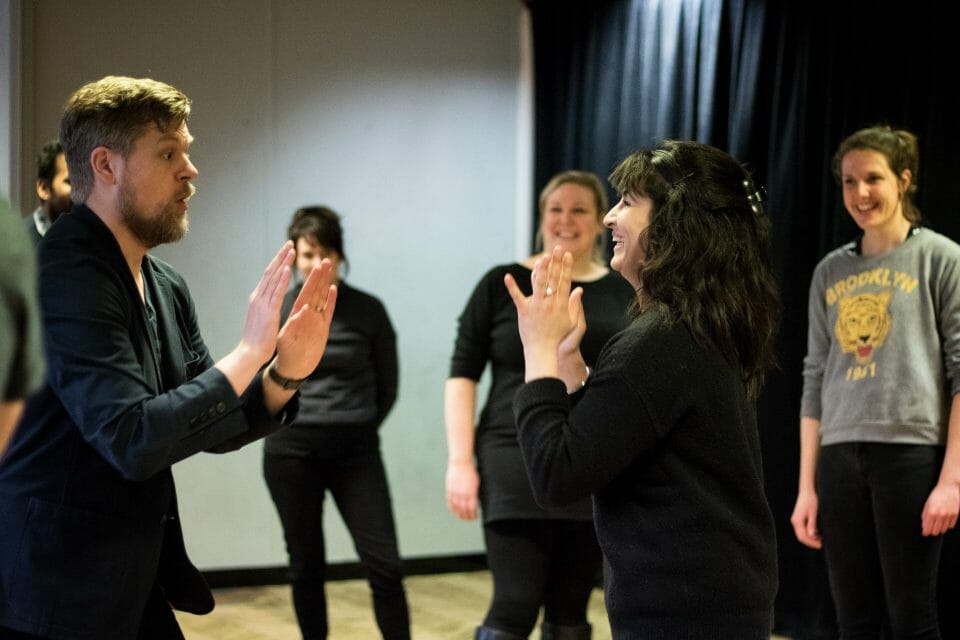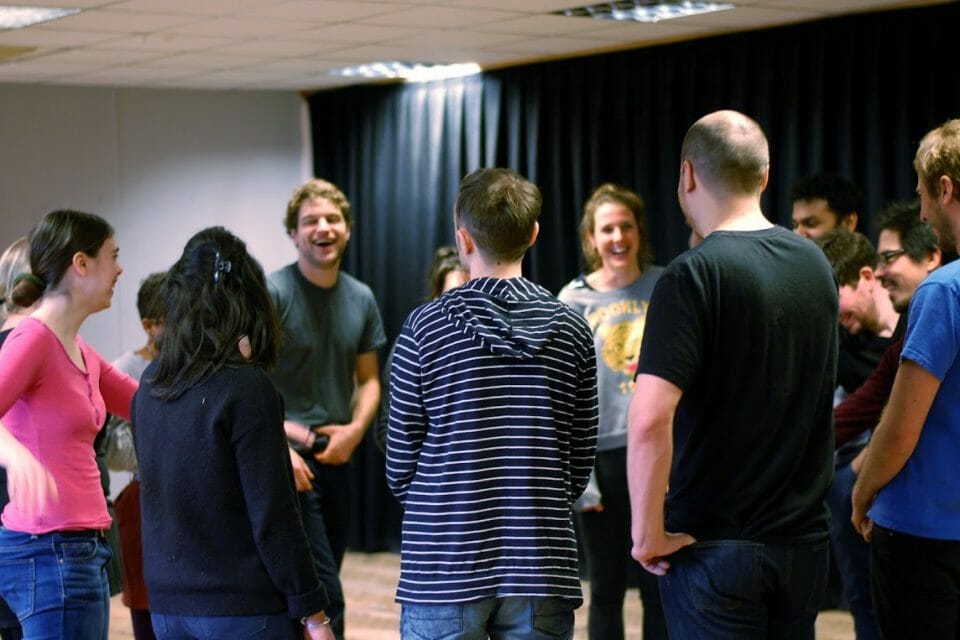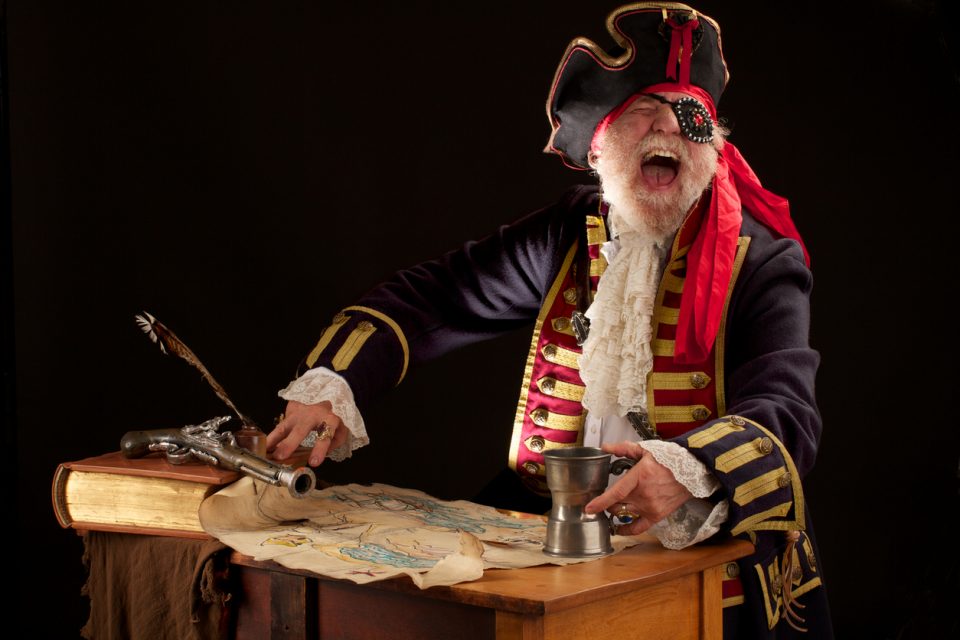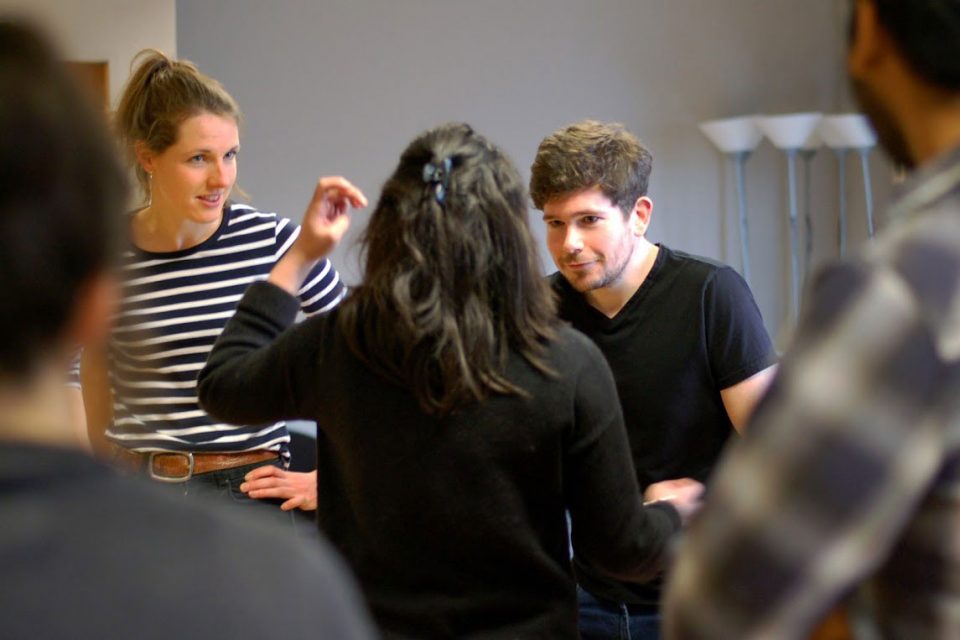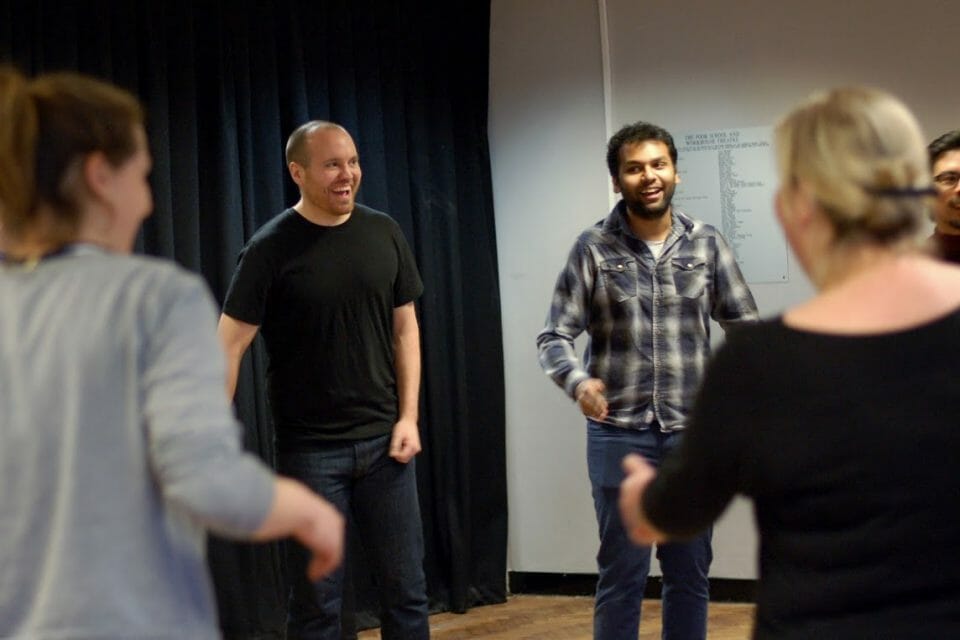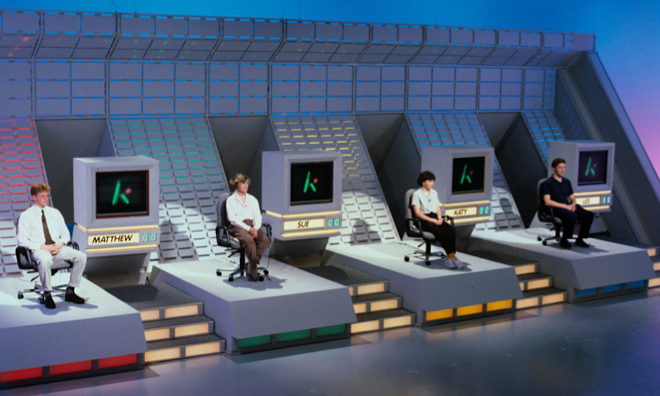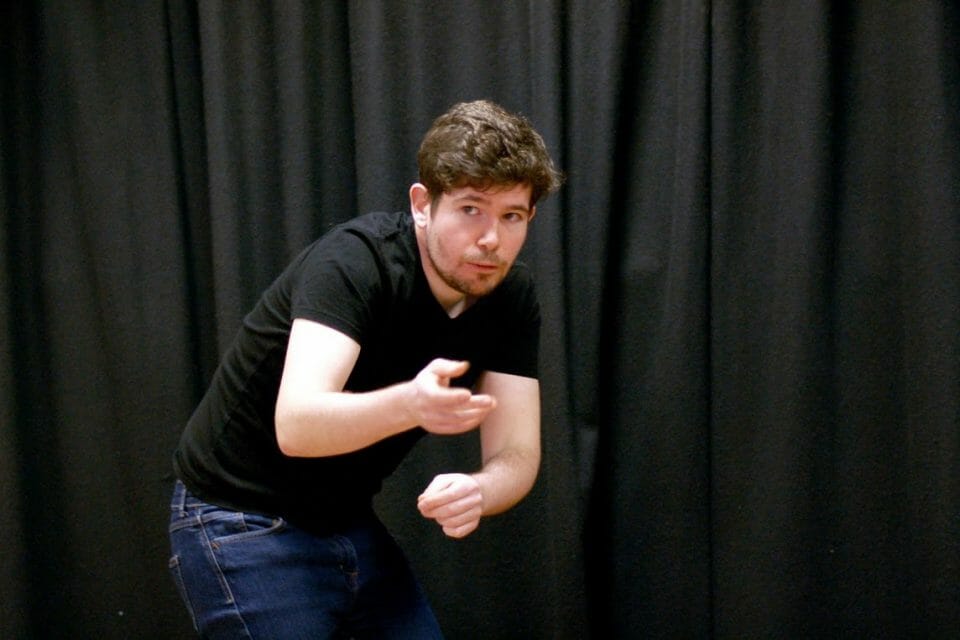A fun quick way to end a workshop on a high. Everyone runs around the room and pairs up and they say to each other at the same time: “I’m great” “You’re great” “We’re great!” Then high five and run off and find a new partner. Keep going until everyone has said it to everyone[…]
This is a really fun character exercise from Mick Barnfather, a Clown and Character teacher and director in London who we highly recommend. How the game works Everyone stood in a circle. One person says an adjective/describing word, for instance “happy”. The person next to them says an animal, for instance “shark”. The next person[…]
This is an exercise we learnt from Keith Johnstone and is helpful for adjusting body language to be more positive and connected to each other. Ask two improvisers to start a scene where the first line is “you are my best friend”. Rewind and adjust body language until it feels like they really mean it.[…]
This game is inspired by the bit in the film When Harry Met Sally where various couples sit on a couch and tell us about how they met. You don’t have to have seen the film to play the game. It’s a great game for discovering character in the moment by listening to changes in[…]
The theory of status, and how to play high status, low status and status interactions, is so well written by Keith Johnstone in his book Impro that we aren’t going to write about it here and will just write about the exercise. We highly recommend Keith Johnstone’s book Impro if you’d like to read more[…]
This is a write up of an exercise called Circle of Expectation. For a description of the theory of Circle of Expectation we recommend reading Keith Johnstone’s books Impro and Impro for Storytellers. Often when people are trying too hard to be funny, clever or creative they say offers that are disconnected from what’s actually[…]
This is one of our favourite exercises and we think we actually invented it, whoop! This exercise is great at simultaneously helping improviser find physicality and voice in their characters while also giving them emotional depth and realism. When playing a character on stage there is also a huge resource that goes with it –[…]
A helpful exercise for learning about game of the scene and especially about how much potential there is in one line or offer. Two improvisers do a scene from suggestion. They start pretty normal to the suggestion, true to life. When something pops up that strikes one of the improvisers has unusual (also referred to[…]
A really fun exercise that helps with game of the scene, especially with escalating behaviour, character and emotions. Two improvisers start a scene from suggestion. Two other improvisers are off stage watching the scene. Whenever they spot something they think is fun they can say “play with…” and then say the thing they want the[…]
This exercise is named after a really difficult 1980s UK game show called The Krypton Factor. One of the challenges in the show was for contestants to watch a video and then afterwards answer really questions about what happened. The questions would be really specific, like how many satsumas were in the fruit bowl behind[…]
Everyone stood in a circle. One person starts by throwing an imaginary ball to anyone else in the circle while saying any word. The receiver catches the imaginary ball, repeats the word, and then says a new word while throwing a new imaginary ball to someone else. This continues around the whole circle in any[…]
This is a great game to bust out if a team are being too competitive with each other on stage, creating too much conflict, or only ever playing high status characters. Everyone gets in pairs around the room. Announce that they are going to do a mimed tug of war between each other on the[…]


